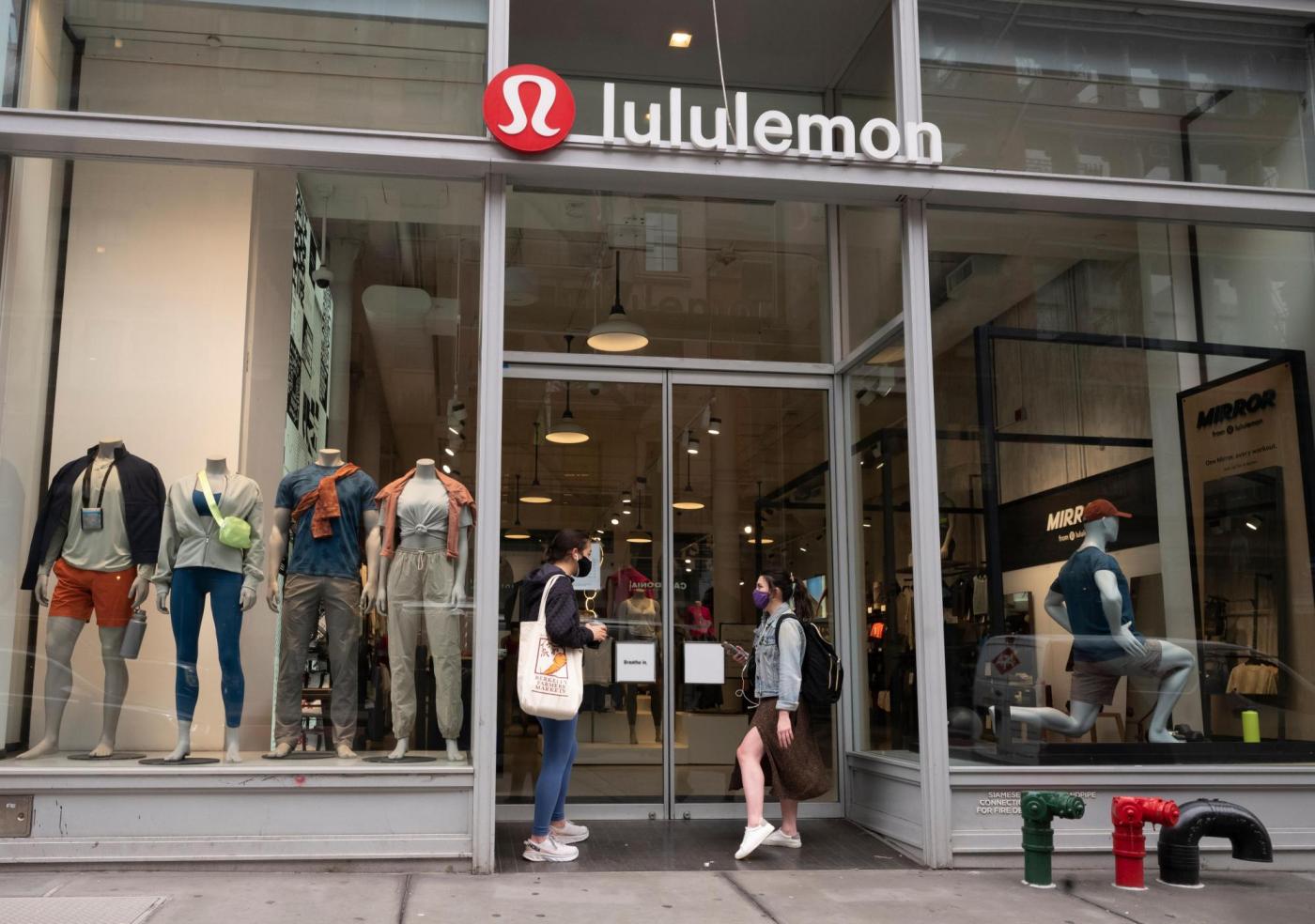NEW YORK (AP) — The phenomenon of fashion “dupes,” cheaper versions of high-end apparel, has sparked a new legal battle as Lululemon filed a lawsuit against Costco. The lawsuit, filed on Friday, accuses the wholesale giant of selling lower-priced imitations of its popular athleisure products. This case highlights a growing trend in the retail industry where social media is amplifying the culture of dupe shopping.
Fashion dupes are not a novel concept. For years, retailers have offered less expensive alternatives to luxury brands through their house or generic labels. However, the rise of social media has taken this trend to new heights. Influencers are now directing their followers towards these knockoffs, making them more accessible and desirable. For instance, while Hermès’ $1,000 fuzzy slippers are out of reach for many, Target offers a similar version for just $15. Similarly, a $2,800 Bottega Veneta hobo bag has a $99 counterpart on Quince, a popular online retailer.
The Legal Landscape of Fashion Dupes
Lululemon’s lawsuit is not its first encounter with alleged knockoffs. The company, known for its premium-priced leggings and sporty zip-ups, has previously faced similar issues. The complaint against Costco is part of a broader strategy to protect its intellectual property from companies that Lululemon claims have “replicated or copied” its designs.
According to Alexandra Roberts, a professor of law and media at Northeastern University, the term “dupe” itself does not inherently indicate legality. Dupes can sometimes venture into uncertain legal territory, particularly concerning copyright and trademark infringement. This is especially true if a dupe marketer makes misleading claims about the product or the original brand.
“With fashion, in particular, we’re going to get into some thorny questions,” Roberts said. “That includes what intellectual property rights exist and how enforceable they are.”
Industry Reactions and Historical Context
The retail industry has seen several legal battles over dupes, with varying outcomes. In December, Benefit Cosmetics lost a lawsuit against E.l.f. over a mascara product, highlighting the complexity of such cases. The judge ruled in favor of E.l.f., with CEO Tarang Amin stating that their product was a “much better value” while maintaining its unique brand identity.
Meanwhile, the popularity of dupes continues to frustrate luxury brands. Hermès Executive Chairman Axel Dumas expressed his annoyance over a viral dupe of the Birkin bag, although he acknowledged the consumer desire for the style. Despite the frustration, these dupes often highlight a significant difference in quality, with consumers aware that they are not purchasing the original item.
Lululemon’s Claims Against Costco
In its lawsuit, Lululemon accuses Costco of unlawfully trading on its reputation by selling imitations of its products, such as the Scuba hoodies and Define jackets. The lawsuit includes a screenshot of Costco’s website featuring the Hi-Tec Men’s Scuba Full Zip, priced at $19.97, as an example of the alleged duplication.
Roberts expressed skepticism about some of Lululemon’s claims, particularly regarding design patents. She noted that some of the features Lululemon is attempting to protect, such as a “triangle kind of shape in the crotch region” of the ABC pants, may be considered functional and thus not eligible for trademark protection.
“My first reaction as a trademark expert is that looks pretty functional,” Roberts commented, adding that functional elements are not protected under trademark law.
However, Lululemon’s allegation that Costco uses manufacturers of popular branded products for its Kirkland brand could support claims of consumer confusion, a key factor in trademark disputes.
Looking Ahead
The outcome of Lululemon’s lawsuit against Costco could have broader implications for the retail industry, particularly in how companies approach the protection of their intellectual property. As the trend of fashion dupes continues to grow, businesses may need to adapt their strategies to address the challenges posed by these imitations.
As of now, Costco has not commented on the lawsuit. The case underscores the ongoing tension between luxury brands and retailers offering more affordable alternatives, a dynamic that is likely to persist as consumer demand for dupes remains strong.
Lululemon’s previous legal dispute with Peloton over alleged “copycat products” eventually led to a partnership, suggesting that resolutions can sometimes lead to collaborative opportunities. Whether a similar outcome could arise from the Costco lawsuit remains to be seen.
